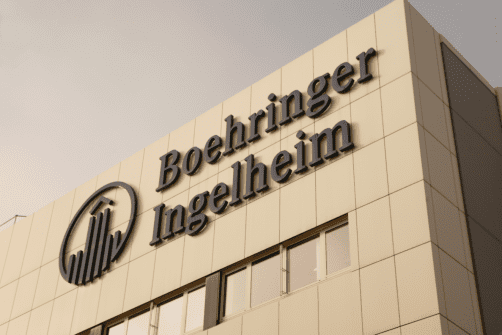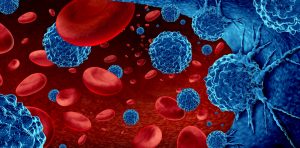
Giotrif increases lung cancer survival
pharmafile | May 16, 2014 | News story | Research and Development, Sales and Marketing | Boehringer, Iressa, Roche, Tarceva, afatinib, giotrif, lung cancer
Boehringer Ingelheim is trumpeting overall survival results from a new analysis of two late-stage studies involving Giotrif in lung cancer patients.
The drug is the private German firm’s first marketed oncology product and is a serious challenger to older treatments such as Roche’s Tarceva (erlotinib) and AstraZeneca’s Iressa (gefitinib).
All three of these drugs target epidermal growth factor receptor (EGFR) mutations in non-small cell lung cancer (NSCLC) patients, but Giotrif (afatinib) is being touted as the first to increase significantly overall survival (OS), the golden endpoint in oncology trials that is rarely reached.
A post-hoc analysis combined data from two Phase III trials (LUX-Lung 3 and LUX-Lung 6) showed that EGFR positive NSCLC patients lived a median of three months longer (27.3 months compared to 24.3 months) if treated with first-line Giotrif (afatinib), rather than chemotherapy.
Giotrif is an EGFR-TK inhibitor and works by blocking the signal pathways helping to slow the growth and spread of certain tumours.
The drug reduced the risk of death by 19% for patients with lung cancer with common types of EGFR mutations – and in those whose tumours have the most common type of EGFR mutation (deletion in exon 19 of the EGFR gene) the figure was 41 per cent.
Boehringer says the analysis adds further weight to earlier published results on progression-free survival (PFS), better control of lung cancer symptoms and the adverse events associated with Giotrif compared with standard chemotherapy.
The announcement comes as pharma gears up to show off its investigational wares at the 50th Annual Meeting of the American Society of Clinical Oncology (ASCO), which starts at the end of this month.
Boehringer chief medical officer Klaus Dugi says: “The combined and individual overall survival results of LUX-Lung 3 and LUX-Lung 6, together with our existing previously reported quality of life and patient reported outcome data, contribute significantly to the robust body of evidence for the use of first-line afatinib in EGFR mutated lung cancer.”
Meanwhile, the manufacturer says a separate Phase III study (LUX-Lung 5) in patients whose lung cancer progressed after several treatments, showed the advantage of continuing Giotrif with chemotherapy after the tumours started to grow under Giotrif alone.
Adam Hill
Related Content

Roche’s Alecensa approved by FDA as lung cancer treatment
Roche has announced that the US Food and Drug Administration (FDA) has approved Alecensa (alectinib) …

Genentech’s Columbi meets primary endpoint in phase 3 trial for lymphoma treatment
Genentech, part of the Roche Group, has announced that its phase 3 STARGLO trial has …

FDA clears Oryzon’s phase 1/2 trial for lung cancer treatment
Oryzon Genomics has announced that the US Food and Drug Administration (FDA) has approved its …








